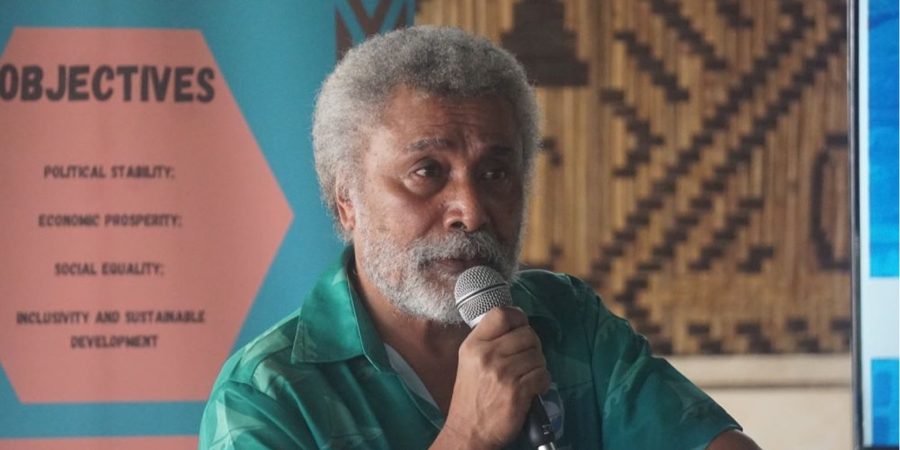A THREE-DAY training called ‘Bluepreneurship-Waste to Wonder’ of turning plastics into opportunities empowerment and waste processing convened in Honiara last week.
The hybrid training held at the Saint Barnabas Leaf Hut was designed to empower and equip 20-30 women, youth, and people with disabilities with basic entrepreneurship skills and knowledge on processing waste into valuable products.
The training engages women, youth and people with disabilities from Honiara community and individuals interested in entrepreneurship and sustainable waste management practices.
Objectives of the training includes: Waste Reduction and Recycling, Entrepreneurship and Economic Empowerment, Environmental Conservation, and Community Engagement and Education.
Speaking at the opening of the training, Melanesian Spearhead Group (MSG) Secretariat, Director General Leonard Louma acknowledged the participants in the training for their interest and willingness to learn about waste management initiatives.
“It is my fervent hope that you will leave this training program at the end of the week as crusaders for responsible waste management, empowered with sufficient knowledge to be meaningfully engaged in the circular economy.
“We must collectively demonstrate strong commitment to fighting what is often termed as the triple planetary crises: – the crises of climate change, the crises of nature and biodiversity loss and the crises of pollution and waste.
“Plastic pollution is a deeply troubling strand of the planetary crises,” Mr Louma said.
Mr Louma said the training is an important one because plastic problem is not fiction but real in MSG countries and the MSG Secretariat would want to ensure that environmental issues are addressed in a holistic manner.
He said the training is the second that the MSG has been involved in the Blueprint concept space. The first one was held in Vanuatu in 2023 and was geared towards small sustainable business development for young entrepreneurs.
Head of the Archipelagic & Island States Forum (AIS-bases in Jakarta, Indonesia), Rinny Modaso said among the most critical waste is plastic waste, which directly affects the oceans, marine life and coastal communities.
She said the United Nations Environment Program (UNEP) reports that nearly 400 million tons of plastic are produced each year globally and if this trend continues, plastic production could reach 1,100 million tons by 2050, potentially leaving more plastic than fish in our oceans.
“For Islanders like us, this is not merely an environmental issue. It is about safeguarding our health, preserving our coastlines, and securing sustainable livelihood.
“The Waste to Wonder program represents a significant step forward not only in reducing plastic waste but also in reimagining it as a valuable resource, a challenge that demands innovative solutions, and an opportunity to empower our communities,” Mrs Modaso said.
She said through this training, participants will learn how to turn plastic wastes into something of real value and something that strengthens local economies while enhancing environmental resilience.
“This gathering is a testament to the power of collective action and by working together, sharing resources, and learning from each other’s experiences, we build resilience across island nations.
“This program will equip you with practical skills, bringing together diverse perspectives to enrich our shared solutions,” Mrs Modaso emphasized.
She told the participants that during the training, they will gain hands-on experience in creating useful and marketable products from plastic wastes.
“For instance, you will explore how plastic can be transformed into construction materials such as eco-friendly bricks, which reduce dependence on traditional resources.
“You will also learn how plastic waste can be converted into alternative fuels, a sustainable energy option that could be adopted locally,” Mrs Modaso said.
Mrs Modaso said the participants will discover creative possibilities for upselling plastic into goods that benefit local markets, from accessories to functional items. This kind of innovation does mean waste reduction.
By AGNES MENANOPO
Solomon Star, Honiara









